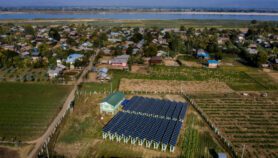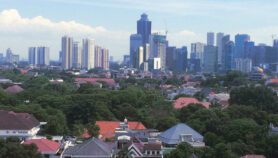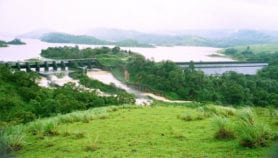By: Luisa Massarani
Send to a friend
The details you provide on this page will not be used to send unsolicited email, and will not be sold to a 3rd party. See privacy policy.
[RIO DE JANEIRO] The Brazilian government has denied accusations that it is refusing to allow unannounced ‘spot’ inspections of its nuclear facilities by inspectors from the International Agency of Atomic Energy (IAEA) intended to curb the spread of nuclear weapons.
In an announcement by the Ministry of Science and Technology (MCT), issued with the support of the ministries of defence and foreign relations, the government confirmed last week that it is only interested in pursuing nuclear energy for peaceful purposes.
But it has also said that it is reluctant to sign the so-called ‘Additional Protocol’ of the IAEA. This grants the IAEA complementary inspection authority to that provided in international agreements on safeguards against the spread of nuclear material.
The United States and others argue that the protocol is necessary to prevent the spread of nuclear weapons. However Brazil says that its measures covering the inspection of research facilities are excessively intrusive, particular those that apply to university research laboratories.
The announcement was made in response to a story published in The New York Times on 28 December. This claimed that, although several countries — including Iran and Libya — have, largely as a result of pressure from the United States, already signed the protocol, Brazil is refusing to do so.
The purpose of the protocol is to allow IAEA inspectors to check on both declared and possibly undeclared nuclear activities. For example, it allows the inspectors access to all parts of a signatory country’s nuclear fuel cycle, including its uranium mines, its fuel fabrication and enrichment plants, and its nuclear waste sites.
Brazil has the sixth largest reserves of natural uranium in the world, and currently exports uranium in its natural state. It subsequently imports the same uranium from Canada and Europe in an enriched form for use in its two nuclear power stations.
The country is now developing its own uranium enrichment technology, and will be able to produce enriched uranium on an industrial scale from next year.
As a result, Brazil expects to be able to produce 60 per cent of the enriched uranium needed by its nuclear plants by 2010, and to become self-sufficient by 2014, at an annual saving of about US$10.3 million dollars, according to the ministry.
In defending its refusal to sign the Additional Protocol, Brazil — which is the only country in the world that explicitly prohibits the construction of nuclear weapons in its federal constitution — argues that all its international commitments on safeguards against proliferation are already being respected.
For the past ten years, it points out, all nuclear material in Brazilian facilities has been subject to international controls, both those agreed jointly with Argentina, and those required by the IAEA. The latter include allowing surprise visits by IAEA inspectors.
The Brazilian government says that it is not opposed to spot inspections, but has difficulty with some aspects of the Additional Protocol. In particular, it is critical of the rigid approach to inspection taken in the protocol, and the way that this is applied to all technological research facilities and universities.
Some sectors of the scientific community, as well as politicians supporting environmental causes, are in favour of signing the protocol, arguing that the nuclear industry needs to be totally transparent in its activities. One federal deputy, Fernando Gabeira, who is known for his environmental militancy, has openly criticised the resistance of the Brazilian government to accepting the protocol.
Other parts of the scientific community, however, as well as military officers who are engaged in developing the uranium-enrichment technology, are concerned that the protocol could become a mechanism for going beyond legitimate efforts to control the peaceful use of nuclear energy.
According to one government official, there is also concern that the protocol could be used for technological piracy, undermining efforts to maintain commercial secrecy around the country’s advanced centrifuge technology.
Keen to achieve a political solution, the ministries of defence and foreign relations are currently drafting an alternative proposal for the Additional Protocol, which they plan to discuss with the IAEA.
Link to statement (in Portuguese) by the Brazilian Ministry of Science and Technology













